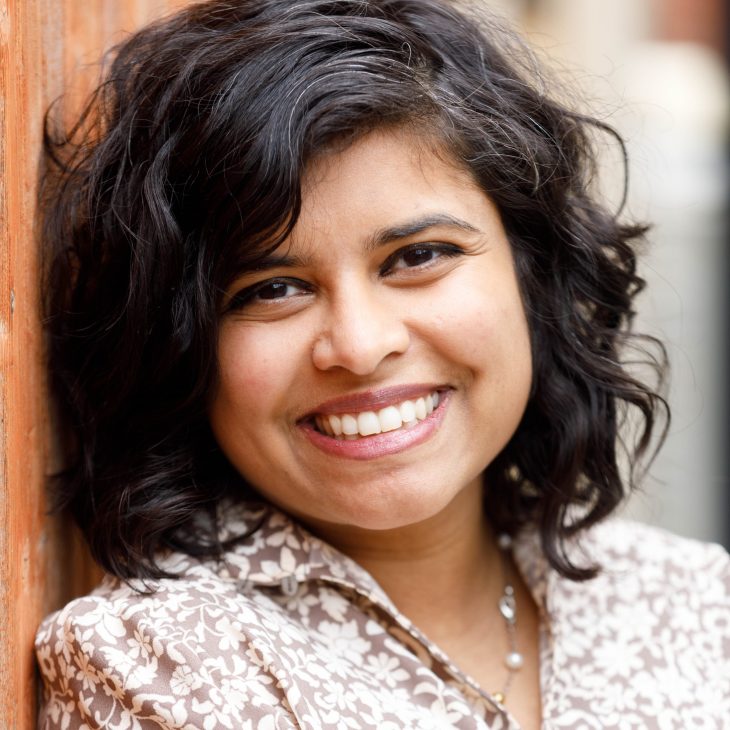“Where are you from?”
Even in my early 30s, I find this question extremely challenging to answer. As an Indian American growing up in the Midwest, this question often served as a form of othering, a time where I had to justify my “American-ness.” Despite choosing to answer with where I was born (Michigan), people inevitably followed up with more insistent inquiry (No, not Michigan, where are you really from?). As I moved and changed jobs and schools, where I was from became a common icebreaker question. Yet, no matter how often people ask me where I’m from, I still wonder how best to answer it.
When I ask myself, “Where am I really from?” many different answers come to mind. There is my ancestral lineage from India, where my parents emigrated nearly 40 years ago, long before I was born. There is the chronological timeline of all the places I’ve lived in over the past 32 years (I was born in Michigan, lived in Minnesota, moved to Arkansas, and the list continues).
However, since I moved every four to five years, these places only sometimes feel like home since I often left just as I began to gain a sense of stability. There were nine years I spent in St. Louis, the place where I formed my identity as a young adult, and it remains the most extended place I’ve ever lived in one place. There is where my parents live, now in a small town in rural Oklahoma, where I’ve never lived but visit when I see my parents. And there is my current home in Los Angeles, where I live with my husband and the family unit we’ve created together.
Yet when people ask me this question, I respond with a mix of these answers without any of them feeling genuine or complete. The longer answer that home is more of a feeling and a community than a physical location often feels too esoteric for the small talk many folks seek when they ask me this question.
My Buddhist spirituality has helped me over the years make sense of this rootlessness.
My Buddhist spirituality has helped me make sense of this rootlessness I feel from uprooting and reestablishing my life so many times in different places over the years. In former Buddhist nun Kaira Jewel Lingo’s book, “We Were Made For These Times,” she reflects on the concept of home as less of a place than a physical state. She describes the Buddhist concept of mindfulness, or being present, as coming home to ourselves. This idea allows us to feel a sense of peace or freedom within ourselves, no matter our circumstances. I love this idea because it creates an expansiveness to the notion of home – that it is more profound than a physical place and instead is a way of being in the world, a form of authentic presence we can cultivate.
Buddhist monk Thich Nhat Hanh often shared the teaching, “I have arrived, I am home,” to remind us that we have nowhere else we need to be. Where we are in this present moment is already enough. As a person perpetually planning on the future, it can be hard to slow down enough to recognize that I am already here and can be at home within myself no matter where I am in the world. I don’t need to be lost in the past or be encompassed with the future – the present is all I am given at any moment.
Being at home with ourselves can be challenging work. Often, unresolved pain or trauma can make it difficult for us to be still, and we may need time, space, and resources to work through. In these moments, we can offer ourselves compassion and know that it is a work in progress – the best gift we can offer ourselves is non-judgmental acceptance of where we are in our journey.
As I embark on another move this year (thankfully to a different physical home close by), I remind myself that it can be normal to find moving stressful and unsettling. Yet, while I can feel deep gratitude for having a safe and physical home, remembering that I always come home to myself can be reassuring. No matter where I am, home is always accessible to me, even in the most uncertain times.
I have built a home with another person a few
times now, always expecting it to be a lasting
havens, as the storms came and went, the homes
would show their weakness and eventually come
apart. being left with the dread of sadness and
the hollowing feeling of unwanted new beginnings,
it has finally dawned on me that if i build a
home within myself, a palace of peace created
with my own awareness and love, this can be the
refuge i have always been seeking.
— yung pueblo

Anu Gorukanti
Anu Gorukanti, MD is a public health practitioner and pediatric hospitalist. She is also the co-founder of Introspective Spaces, a social venture committed to building reflective space and community for women in healthcare. She was a member of the Sacred Journeys and Witness fellowships. She cares deeply about the well-being of her colleagues in healthcare and is passionate about healthcare reform to create equitable and compassionate care for patients and communities. In her free time, she loves to photograph landscapes, learn to dance and spend time with her wonderful husband, friends and family.




